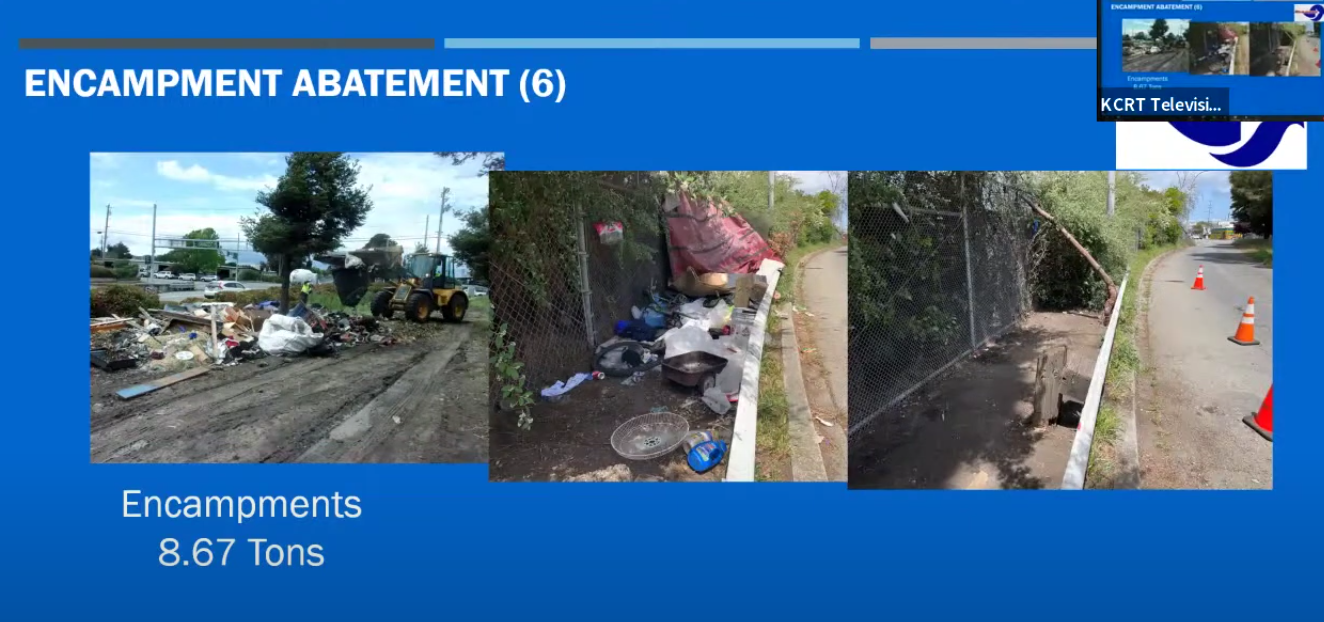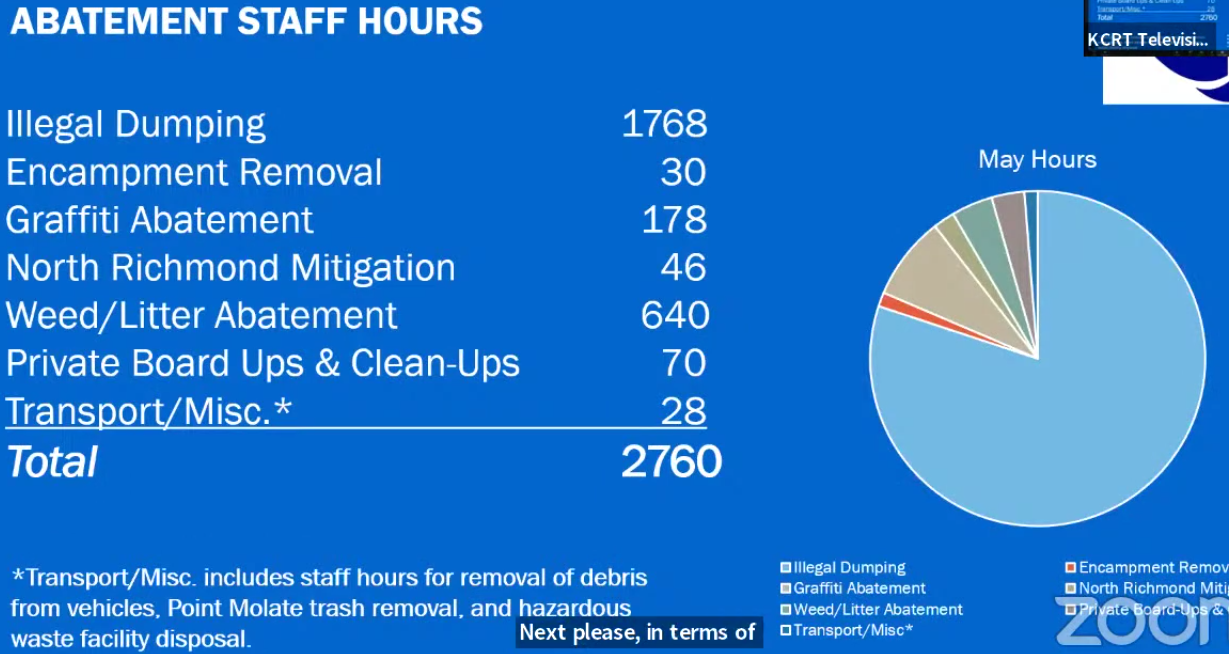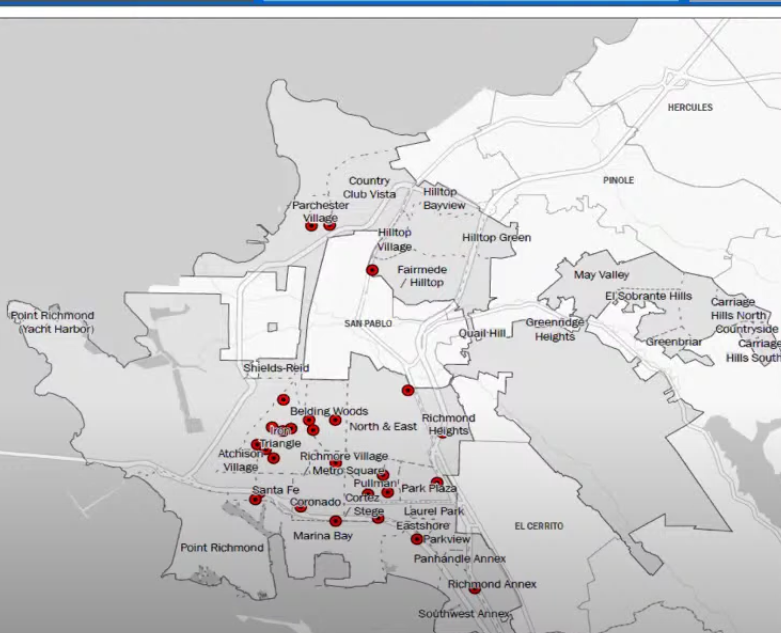

In the month of May, city workers cleared 185 tons of illegally dumped garbage, including 216 tires and 222 mattresses, at nearly 1600 locations around Richmond, according to a report presented to the city council Tuesday.
Public Works Director Daniel Chavarria said that in the last month, city workers spent 1,768 hours cleaning up illegally dumped garbage and another 30 hours removing debris from six encampments within the city.
The encampment debris alone totaled nearly 9 tons just for the month of May. That number included Richmond's Castro encampment, which recently also received additional help from several community groups assisting with cleanups.

According to the report, other time-consuming responsibilities of city workers include removing graffiti and weed abatement, Chavarria told the council.
Chavarria said that dumping has been consistent. "In terms of staff hours, you can see the majority of it went to illegal dumping.
"For the first five months of 2023, we have spent over $580,000. I'm going to let that amount sink in for a moment," Chavarria said.
Indeed, keeping up with all the debris in Richmond costs the city close to a million dollars per year. City staff spent 2,760 hours in May alone trying to mitigate garbage, weeds, and graffiti, the report shows.

Additionally, three city-sponsored Dumpster Days netted over 42 tons of debris removed from Richmond neighborhoods.
Mayor Eduardo Martinez seemed surprised at the numbers and asked if money could be saved by incentivizing illegal dumpers to properly dispose of their debris.
"We spent 580,000 on illegal dumping? If all that was used as an incentive to have all these illegal dumpers take it straight to the trash, would it cost as much, or would it be cheaper?" Martinez asked.
"Most of that goes cost to the staff salaries and benefits. What we could do is instead of investing time in illegal dumping, we would not remove that entire cost, but we could allocate that cost to something that is more of a benefit to the city," Chavarria said.
"These numbers are astounding," Councilmember Cesar Zepeda said before asking about the feasibility of installing cameras in the 27 areas regarded as hot spots for dumping to help mitigate the problem.
"If we tap into the system the Richmond Police are installing, and we understand they have good success, we could spend $100,00 in just cameras that could be monitored by the police department they could identify the people who are the problem," Chavarria said.
"That would be a savings of almost a million dollars, right?" Zepeda said. Chavarria said that was correct and stated, "Those funds could then be reallocated to perform other tasks."

